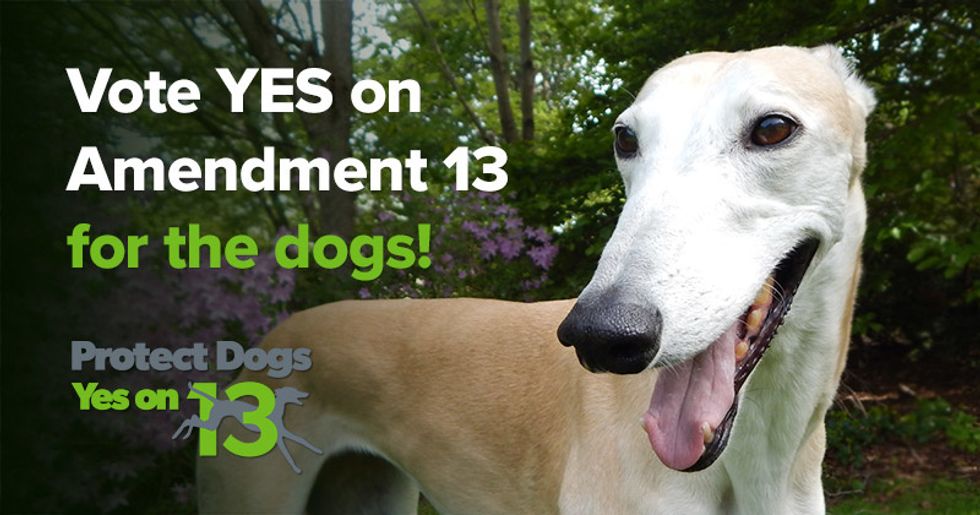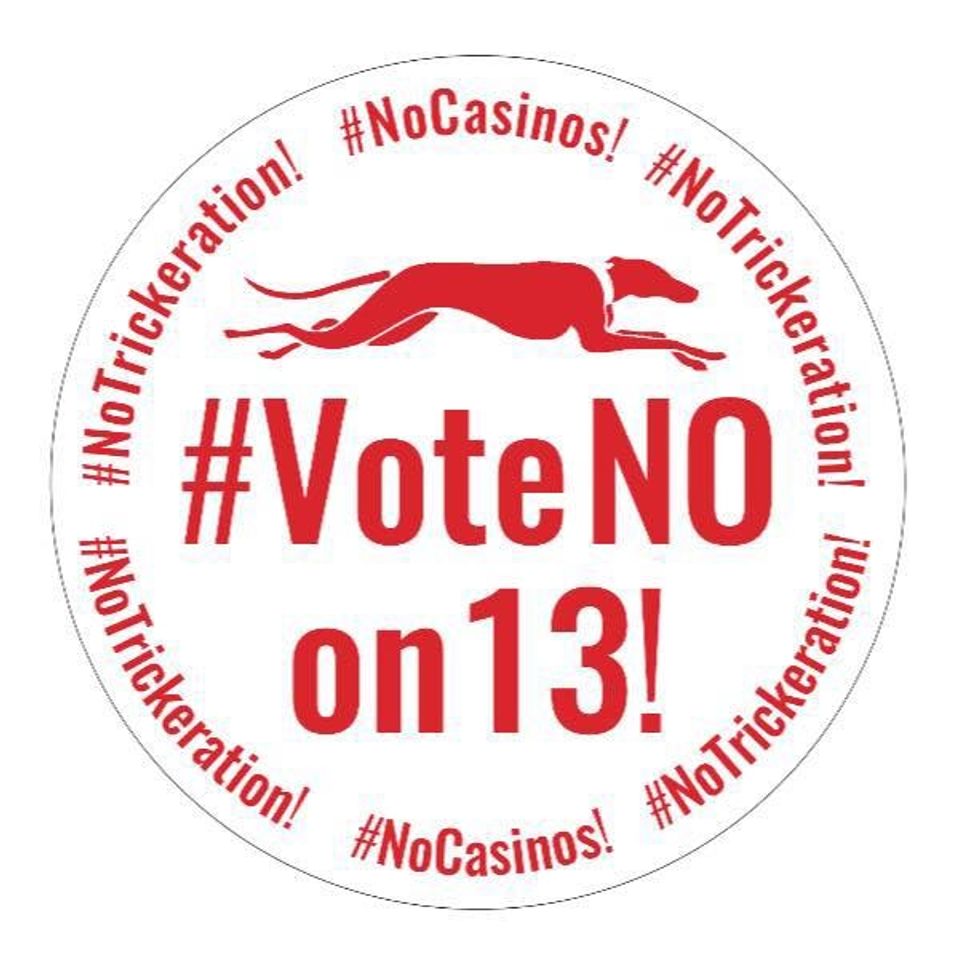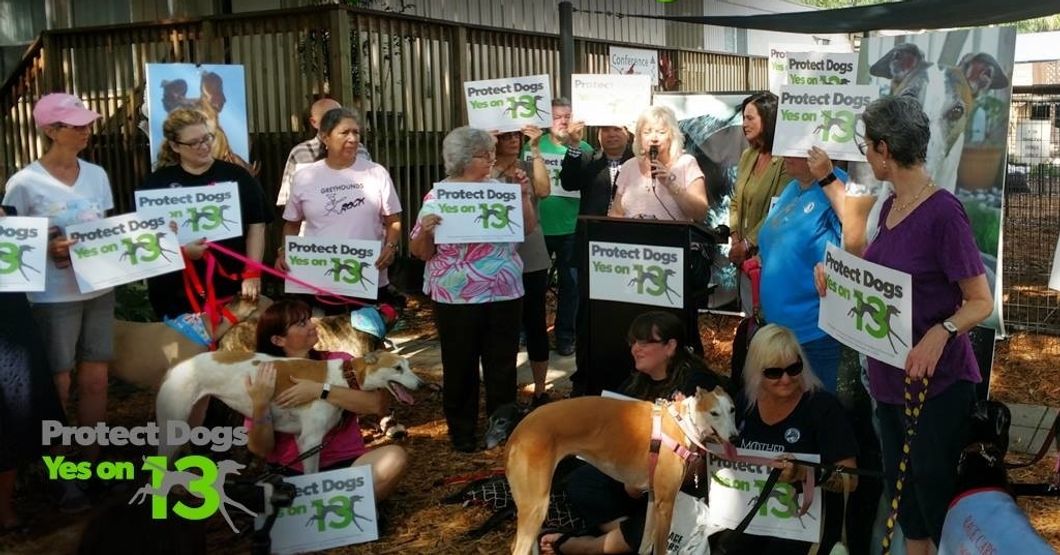In the state of Florida, an amendment has been brought to the ballot about the racing of greyhounds at the tracks.
The controversy over this doesn't seem like so much of a controversy.
The Sun Sentinel reported that the total dollars bet at Florida's dog tracks has declined more than 70 percent since 2001. Nationally, betting on greyhound racing fell from an all-time high of $3.5 billion in 1991 to less than $500 million last year. Paid attendance has dropped more than 85 percent. Once, more than 50 dog tracks operated in 15 states. Today, only 17 tracks survive, 12 of them in Florida.
It's the industry that needs to end.
The American Society for the Prevention of Cruelty to Animals(ASPCA) says the greyhound dogs that are raced on the track suffer from broken legs, cardiac arrest, spinal cord paralysis, and broken necks. Off the tracks, the dogs spend their lives stacked in kennels for 20 or more hours a day, kept in outdoor pins with minimal shelter with no heat or air conditioning. Also, these dogs suffer from fleas, ticks, and internal parasites and not given basic veterinary care, human affection, adequate sustenance. The life spans of these dogs are usually 13 years, but when raced, it is usually 18 months to 5 years old. They are required to retire because they are deemed unfit to race and not as fast anymore leading to no profit. If the dogs aren't sent to rescue organizations then they're killed or given to breeders and serve has only that.
Organizations like Grey2K USA and ASPCA are standing up for the greyhounds and want a "Yes" on Amendment 13.

The greyhound racing tracks want a "No" because they still want the revenue that the greyhounds bring in. In reality, it's not a lot and especially not as much over the years. The industry isn't worth saving anymore. These racinos need to turn into casinos. It's costing Florida millions to keep up and not receiving that money back.

Tony Glover, a reporter for the Miami Herald, says "I am not an animal rights activist, per se … it quickly became clear to me that the dog racing industry is a major problem." Tony Glover is an attorney in Tallahassee. He previously served as Director of the Division of Pari-Mutuel Wagering, the agency that regulates greyhound racing in Florida. Glover also included in his article how bad the drugs were in the industry with 70 dogs testing positive for cocaine metabolics over the last decades. Others have been given steroids and opioids. "As if that wasn't enough, greyhounds are also being found with other substances like caffeine, Lidocaine, Novocaine, and an industrial solvent called DMSO floating in their blood. Keep in mind that the state's drug testing program is random and that state investigators cannot be everywhere at once. That means that the violations cited above are just the ones that we know about."
Sun-Sentinel also reported in their article that state records indicate that 483 greyhounds have died on the track or in the kennel areas in the last five years. Most of those deaths are attributed to racing injuries, including fatal shocks from contact with high-voltage mechanical rabbits that lead the dogs around the tracks.
So what exactly is amendment 13?
The amendment states, "Prohibition on racing of or wagering on greyhounds or other dogs.-The amendments to Article X, which prohibits the racing of or wagering on greyhound and other dogs, and the creation of this section shall take effect upon the approval of the electors."
The League of Women Voters of Florida has it stated "This amendment would ban wagering on dog racing in Florida. Dog racing – usually greyhounds – is one of several "pari-mutuel" wagering sports in Florida. Others include horse racing and jai-alai. Florida has 12 of the nation's 18 dog-racing tracks.
Under Amendment 13, dog tracks would be allowed to use their permits to host other pari-mutuel sports. Also, the amendment waives a state requirement that tracks hold greyhound races in order to continue operating poker rooms or slot machines as part of their pari-mutuel licenses (a CRC analysis of this proposal is here).
The amendment requires the Legislature to set criminal and civil penalties for violating the dog-racing ban. The Department of Business and Professional Regulation, which regulates pari-mutuels, estimated an annual loss of $1 million in tax revenue if voters approve the ban.
If approved, the amendment takes effect immediately but allows greyhound racing to continue until Dec. 31, 2020."
A yes means: Ban all dog racing in Florida by Dec. 31, 2020, while allowing tracks to continue operating card rooms and slot machines. Result in a loss of about $1 million in taxes and fees.
Supported by: GREY2K USA, League of Women Voters of Florida, and ASPCA
A no means: Continue to allow wagering on dog racing in Florida.
Supported by: Florida Greyhound Association; Florida Chamber of Commerce
Election day is on November 6th, 2018 and Amendment 13 will be on the ballot.

















